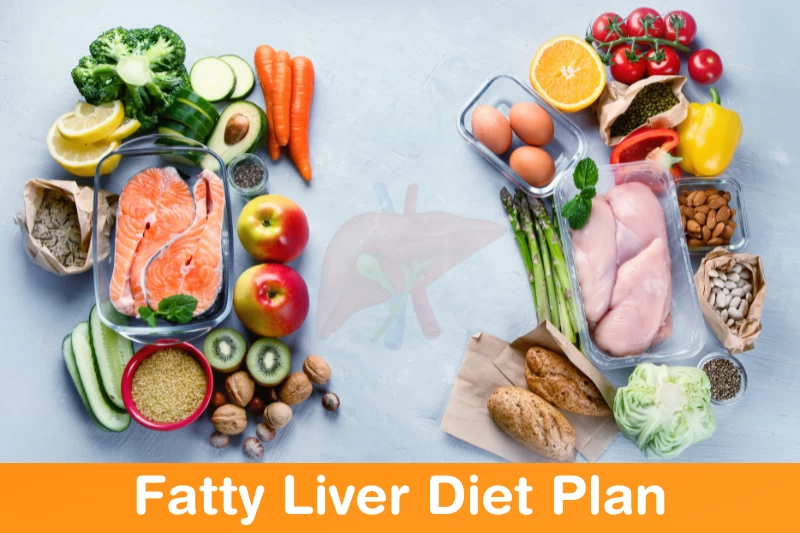
- 25th March 2023
Table of Contents
What is Fatty Liver?
Fatty liver, also known as hepatic steatosis, is a condition characterized by the accumulation of excess fat in the liver cells. This can lead to inflammation or scarring of the liver and affect its ability to function properly. While it's normal for the liver to contain some fat, having more than 5-10% of your liver weight from fat is considered fatty liver disease. One of the main causes of fatty liver disease is an unhealthy lifestyle, including a diet high in sugar and saturated fats, excessive alcohol consumption, and lack of physical activity. Being overweight or obese also increases your risk for developing fatty liver disease. Fortunately, regular exercise has been shown to benefit those with fatty liver disease by reducing inflammation and improving insulin sensitivity. The best exercises for promoting overall liver health involve moderate-intensity aerobic activities like brisk walking or cycling for at least 30 minutes per day most days of the week. Resistance training with weights may also be beneficial in increasing muscle mass and reducing body fat percentage.
Benefits of Exercise
When it comes to liver health, exercise can play a critical role. Fatty liver disease is a condition where excess fat accumulates in the liver due to unhealthy lifestyle choices such as excessive alcohol intake, poor diet and lack of physical activity. This can lead to inflammation and scarring of the liver, which can ultimately result in permanent damage if left unaddressed. However, regular exercise has been shown to be effective in preventing and reversing fatty liver disease. Aerobic exercises such as running, cycling or swimming have been found to reduce inflammation and improve insulin resistance- factors that contribute significantly to fatty liver disease. Additionally, strength training exercises like weightlifting have also been found beneficial for reducing fat accumulation in the liver. To reap maximum benefits from exercising when combating fatty liver disease it’s recommended that one incorporates moderate-intensity physical activities into their daily routine consistently over time. This should be accompanied by a balanced diet rich in nutrients essential for healthy living. Ultimately this will lower the risk of developing chronic diseases associated with poor lifestyle choices while improving overall health outcomes such as weight control and improved mood.
Types of Exercises
1) Aerobic exercises: These types of exercises help in increasing the oxygen supply to the body, which in turn helps in reducing the fat content from the liver cells. Examples of aerobic exercises include brisk walking, jogging, cycling and swimming. These activities also help in improving heart health and reducing stress levels.
2) Resistance training: Resistance training is another effective form of exercise for liver health. It involves weightlifting or using resistance bands to build muscle mass, which can help increase metabolism and decrease fatty deposits in the liver. This type of exercise can also improve insulin sensitivity and reduce inflammation.
3) Yoga: Yoga is a low-impact exercise that promotes relaxation and flexibility while also improving liver function. Certain yoga poses like twists or inversions can stimulate blood flow to the liver and encourage detoxification processes.
Overall, incorporating a combination of these different types of exercises into your routine can be beneficial for maintaining good liver health as well as overall physical wellbeing.
Intensity and Frequency

When it comes to exercising for liver health, there are two important factors to consider: intensity and frequency. Intensity refers to the level of effort put into each exercise session, while frequency is how often you engage in physical activity. Both of these factors can have a significant impact on fatty liver disease. High-intensity interval training (HIIT) is a popular form of exercise that has been shown to be particularly effective in reducing liver fat. This type of training involves short bursts of intense exercise followed by periods of rest or low-intensity activity. HIIT can be done in just 20-30 minutes and has been shown to improve insulin sensitivity as well as reduce liver fat. In addition to intensity, frequency is also an important consideration when it comes to improving liver health through exercise. Regular physical activity, even at a moderate level, has been linked with lower levels of liver fat and improved overall health outcomes. Aim for at least 150 minutes per week of moderate-intensity aerobic activity such as brisk walking or cycling, spread out over several days if needed. By prioritizing both intensity and frequency in your exercise routine, you can promote optimal liver health and reduce your risk for chronic diseases like fatty liver disease.
Fueling the Body
Fatty liver disease is a condition that affects millions of people worldwide. This disease occurs when there is an accumulation of fat in the liver, which can lead to inflammation and scarring. One way to prevent or manage fatty liver disease is through regular exercise. Exercise not only helps to reduce fat in the liver but also improves overall health. There are several exercises that are particularly beneficial for liver health. Aerobic exercise, such as running or cycling, can help to burn fat and improve insulin resistance, which can reduce the risk of developing fatty liver disease. Resistance training, such as weightlifting or bodyweight exercises, can also be beneficial as it helps to build muscle mass and increase metabolism. It's important to note that exercise alone may not be enough to reverse fatty liver disease completely. A healthy diet rich in fruits, vegetables, lean proteins, and whole grains is also essential for managing this condition. By combining regular physical activity with a nutritious diet and other lifestyle changes such as reducing alcohol intake and quitting smoking, individuals with fatty liver disease can take control of their health and potentially improve their condition over time.
Overcoming Challenges
One of the biggest challenges that individuals with fatty liver disease face is incorporating exercise into their daily routine. With fatigue and muscle weakness being common symptoms of the condition, it can be difficult to find the motivation to get moving. However, regular exercise is essential for improving liver health as it helps to reduce inflammation and insulin resistance. To overcome this challenge, it's important to start small and gradually work your way up. Begin with low-intensity exercises such as walking or gentle yoga and aim for at least 30 minutes a day, five days a week. As you build endurance, you can gradually increase the intensity and duration of your workouts. Another helpful tip is to find a workout partner or join a support group for individuals with fatty liver disease. Having someone to hold you accountable and offer encouragement can make all the difference in staying motivated on your fitness journey towards better liver health. Remember that every step counts towards overcoming this challenge!
Conclusion: Commitment to Change
In conclusion, making a commitment to change is vital for those looking to improve their liver health. Exercise has been shown to be one of the most effective ways of reducing liver fat and improving liver function. However, it's important to note that exercise alone is not enough. A healthy diet and lifestyle changes are also necessary for optimal results. The key to success when committing to change is consistency. It's important to make exercise a regular part of your routine and stick with it even when you don't feel motivated. Starting small and gradually increasing the intensity and duration of your workouts can help prevent burnout or injury. Finally remember that taking care of your liver should be a lifelong commitment. By making daily choices that support liver health such as exercising regularly, eating a balanced diet, avoiding excessive alcohol consumption, and managing stress levels, you can significantly reduce the risk of developing fatty liver disease in the long term.














